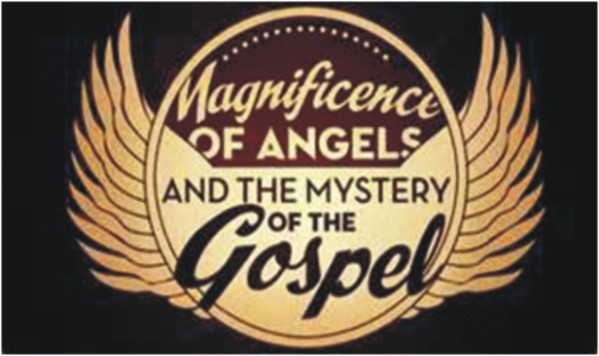
Continuing from last week)
WE noticed last week that the Scripture teaches us that the privilege to sit in judgment over the affairs of fellow man is an attribute of God; and that it is the duty of judges and civil magistrate to deliver and pronounce judgments as part of God’s way of restraining evil and sin, and their effects in this world of time. So a man who says he has no respect and faith in the institution of police and civil courts, is contradicting the Scripture. It does not always mean the use of force, nor is it right to associate corruption and deliberate miscarriage of justice to the judiciary as an institution. Whatever the feeling, judgment has to be exercised to ensure social orderliness; and for any Christian not to do so, or to be unprepared to accommodate and respect judgments, is not merely to fail in fulfilling his duty, it is to be unscriptural.
We find the same teaching in the Scriptures with regard to the church. They show clearly that judgment is to be exercised in the realm of the church. It is almost true to say generally that such a thing as discipline in the church is almost non-existent these days. A retrospect into the history of Protestantism shows the protestant definition of the church thus: “that the church is a place in which the Word of God is preached, the Sacraments are administered and discipline exercised”. Discipline to the Church fathers was as much a mark of the Church as the preaching of the Word and the administration of the Sacrament. Today we know very little about discipline – the pastors and leaders of the church now give priority to money – incessant sowing of seed; quality offering; tithe that is not administered properly according to the divine requirements etc. etc; and the leity that has been deliberately misguided and misled into a flabby notion and sentiment that you must not judge, while the bishops, pastors, reverends, evangelists confront the members with the usual ungodly question: “Who are you to express judgment” But the Scripture exhorts us to do so. They cover up; and take out of context with an oblique interpretation of 1 Peter 4:17 particularly the portion that says; “… Judgment must begin at the house of God…” This they claim in their deceit, places the perverse self- seeking and deceitful pastors beyond human question and judgment, claiming that they are only accountable to God hence ‘judge not.
For purposes of clarity, the whole verse 17 of 1 Peter 4 reads: “For the time is come that judgment must begin at the house of God: and if it first begin at us, what shall be the end of them that obey not the gospel of God” Far from placing any reproach or curse on any man who pointed out the failings or ungodly deceit of the clergy, such will receive God’s blessing for saving those who otherwise would have been lost to inadvertently disobeying God. The judgment scene of Ezekiel 9 apparently constitutes the setting of Peter’s comparison of the faithful Christian and the ungodly before the judgment throne of God.
The Greek word ‘krima’ translated judgment in this passage means “The sentence” which in its primary application will mark the close of God’s mercy and grace when there will be no more room for repentance and sin. God’s retributive justice will surely begin at His sanctuary, the church in the last days with those to whom God has given great light (anointing) and who have stood as guardians of the spiritual interest of Christians, but who have betrayed their trust.
These unfaithful shepherds receive first, the abuse that will be leaped upon them by those who have been deceived by their guile, After they perish in the general destruction that precedes and accompanies the second coming of Christ (see Rev. chapters 15 to.
The foregoing does not in anyway imply, nor encourage disrespect, disobedience or unwarranted argument over doctrinal and other non-doctrinal issues with priests, pastors, and other leaders of the church. In fact it is an argument for great canonical obedience and respect to those placed in the charge of the church (see Titus 3:9).
This question of judging, also, applies to the matter of doctrine. Take for an example the question of “false prophets” to which the Lord Jesus Christ calls attention. The Christian is supposed to detect and avoid them. But this is impossible without knowledge of doctrine, and the exercise of such a knowledge in judgment. Paul in Gal. 1:8 says: “But though we, or any angel from heaven preach any other gospel unto you than that which we have preached unto you, let him be accursed.” This is a clear judgment and pronouncement. .
In this passage Paul made the strongest affirmation of certainty with respect to the gospel as he has presented it; and any other gospel that is a gospel of a different kind — would be contrary to the true gospel. He based this judgment on the established fact that God does not change, nor does He contradict Himself. All this is judging. And finally, he passes sentence on any who would preach a contrary gospel. “… let him be accursed”. The Greek word “anathema” rendered “accused” in the passage connotes vengeance – “a cursed things”. That is the vengeance of God. Spiritually it denotes the state of one who is alienated from God by sin. As used in the NT, it does not refer to ecclesiastical excommunication as practiced in the early church, but no doubt did include some form of disciplinary action or separation from the church (also see 1 Cor. 5:2) All this is judgmental (see further 1 Cor. 15; 1 Tim. 1:8,17,18; Titus 3; 10).
John the Divine often referred to as Apostle of love in his first epistle gives instructions with regard to false prophets and the anti- Christ, who must be avoided and rejected by Christians. And, indeed in his second epistle, which actually is in form of a personal note to an “elect lady and her children.” Although some scholars maintain that the name of this unclearly identified woman is (Gr.) Electra – the Greek word for chosen – others interpret this designation as a personification of one of the first century churches. The reference to “some of your children” (v4) and “The children of your elect sister” (vl3) as well as the time of the letter, seem to indicate that a church is addressed, rather than a family. However, majority of commenting scholars opine that John addressed the epistle to a highly honoured Christian matron who lived somewhere in the circuit of churches which the now aged Apostle wrote to between AD 85 and 90 in the city of Ephesus.
In the Epistle, John decrees: “If any come to you and bring not his doctrine (i.e., the doctrine of the immaculate conception, birth, ministry, death and resurrection of Christ) receive him not into your house, neither bid him God speed. For he that biddeth him God speed is partaker of his evil deed” Evidently, the teachers of error, false prophets etc were being entertained in Christian homes under the cloak of hospitality to men of God. The Apostle sternly forbids the continuance of this practice and commands believers not to grant such fellowship and Christian hospitality. This is all judgmental and the Christian must exercise judgment to do all this.
This short Epistle also sheds light on the issue of separation from ecclesiastical apostasy. Today this issue is almost as vexing as the question of ecumenicalism. Although separatist movements among Christians have often been tarnished by a spirit of censorious criticism and a conspicuous lack of love, it must still be said that Scripture does not condone compromise with apostasy and sin. There simply cannot be any harmonious fellowship with religionists who deny the true person and work of Christ.
We find the same thing in our Lord’s words to the Jews in St. John’s Gospel 7:24 “Judge not according to the appearance, but judge righteous judgment” compare this verse with Deut. 16:18-20; lSam,16:7. God in the passages is exhorting the people against the habit of judging by outward appearance and making such judgments that would lead to the conclusion that acts of mercy, such as the one Jesus performed – healed a sick man on a Sabbath day, were a violation of the Jewish Sabbath law. And in Luke 16:15. Jesus looks at the Pharisees and says to them, “Ye are they which justify yourselves before men; but God knoweth your hearts: for that which is highly esteemed among men is abomination in the sight of God” This is a simple reflection of some of today’s pastors and preachers who have succeeded in persuading men of the validity of their false theory that wealth is a reward and proof of righteousness. They ably defend their case,” and at least those who have a measure of this world’s wealth find satisfaction is such a theory.
The trouble with such pastors, priests and evangelists, like the Pharisees is that they are hypocrites (see Matt. 6:2; 7:5), their righteousness is nothing more than a whitewash.
All this again raise the pertinent question: How can we put all the injunctions into practice, if we are not to exercise judgment, if we are not thinking, if we have not a standard and we are not prepared to make an assessment? These are a few selections out of a large number of Scriptures which could be quoted here-in, but they are enough to prove that our Lord’s statement “judge not” cannot be interpreted as meaning that we must never judge, never arrive at conclusion
Welcome!Log into your account





